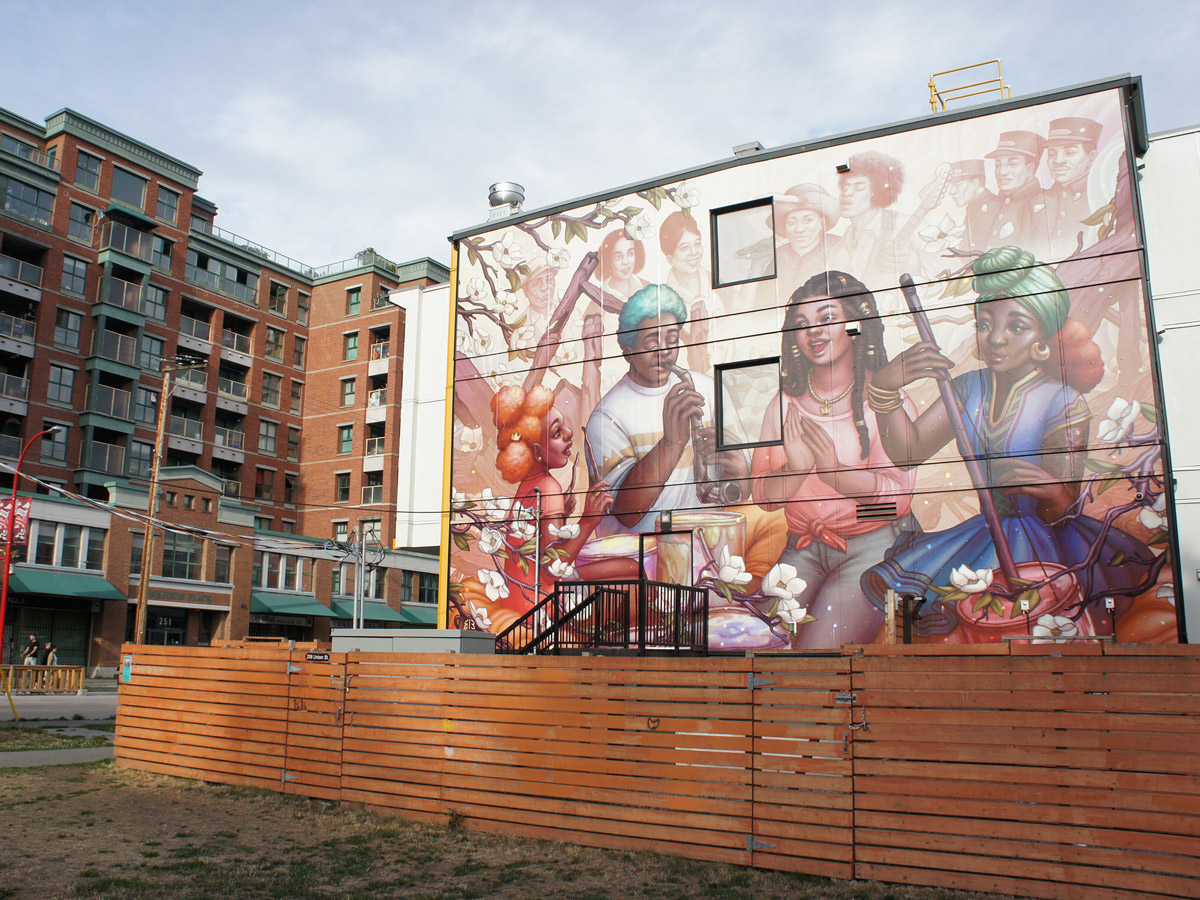Urban and Regional Planning - BURPI
Is it for you?
Urban and regional planners employ land-use concepts and strategies to develop and enhance regional, urban, suburban and rural communities. You’ll develop applied research and analysis skills through drafting in studio practice, consult in teams, travel on week-long field trips and can choose to pursue an international exchange program. Upon graduation, you’ll understand communities’ needs, structures and rules, and be ready to advise on planning decisions related to social, economic, environmental, cultural, land development and transportation issues.
Accreditations:
- Canadian Institute of Planners (CIP)
- Ontario Professional Planners Institute (OPPI)
- Professional Standards Board (PSB) for the Planning Profession in Canada
Program info
Faculty:
Faculty of Community Services
Program format(s):
Full time: 4 Year
2-Year Post-Baccalaureate
2-Year Degree Completion
Degree:
Bachelor of Urban and Regional Planning

Tuition and fees range 2024-2025
For detailed fees information, visit tuition and fees by program.
Full-time format:
Ontario students: $7,340 - $7,813
Out-of-province students: $8,402 - $9,101
International students: $35,063 - $36,374
First-year courses
Here is a preview of first-year courses based on the available undergraduate calendar information.
Your future
You’ll be prepared to address the complex needs, structures and rules of communities through progressive opportunities in:
- Municipal or provincial government
- Private real estate development
- Finance
- Retail
- Community social service or volunteer agencies
- Law firms
- Urban design technology
- Consulting
- Technical analysis
- Program and policy development
- Research
- Project management
- Graduate studies in planning and urban development
Thinking of applying? Make sure the program is still accepting applications.

Ontario Secondary School Diploma (OSSD) or equivalent with a minimum of six Grade 12 U or M courses including the following program specific requirements.
Typically, a minimum overall average of 70% establishes eligibility for admission consideration; subject to competition individual programs may require higher prerequisite grades and/or higher overall averages:
- English/anglais (ENG4U/EAE4U preferred)
- Recommended: Grade 12 U or M courses in social sciences and the humanities (HFA4M, HHS4M, HHG4M, HSB4M, HZT4U) and/or economics (CIA4U) and U courses in Canadian and world studies (CGW4U, CGU4U, CHI4U, CHY4U, CLN4U, CPW4U), science (SBI4U, SCH4U, SPH4U, SES4U) and/or mathematics (MHF4U, MCV4U, MDM4U)
- Note: the minimum grade required in the subject prerequisite (normally in the 70% range) will be determined subject to competition
Academic admission requirements for all other applicants are available on the admission requirements page.
- Completion of a baccalaureate degree from an accredited English language university including a minimum of six liberal studies (liberal arts and sciences) courses.
- Qualified applicants must successfully complete a 75 hour, three week Spring/Summer intensive block course (CVUP 100) which is offered through The Chang School of Continuing Education. Students must complete CVUP 100 prior to their entry into the program.
- Completion of the Urban and Regional Planning Technician - Geographic Information Systems (GIS) Diploma from Mohawk College or the GIS and Urban Planning Diploma from Fanshawe College with a minimum ‘B’ overall average.
- Qualified applicants must successfully complete a 75 hour, three week Spring/Summer intensive block course (CVUP 100) which is offered through The Chang School of Continuing Education. Students must complete CVUP 100 prior to their entry into the program.

Student spotlight
Redesigned courses explore Black-led city-building efforts as well as historical and contemporary harm
With innovative studio courses, students learn through community engagement and producing deliverables for client organizations. In one project, students collaborated with Black Futures Now TO, a Toronto-based collective of young Black community and city builders. They created mini-documentaries to amplify the collective’s work and to highlight Black experiences with planning in Canada.
Read more: Black experiences with planning in Canada
Mural: "Remember Hogan’s Alley” by artist Ejiwa “Edge” Ebenebe
Photo by Magdalena Ugarte


More ways to explore TMU
 Notes:
Notes:
- Actual minimum grade ranges required for fall 2024 admission/wait list consideration will be determined based on grades and qualifications presented by the applicant pool as they become available. Required grade ranges may fluctuate from year to year (up or down) as a result of competition. Applicants not educated in Ontario may present the equivalent of the Ontario requirements. TMU reserves the right to determine equivalency at its sole discretion.
Disclaimer:
While every effort is made to ensure accuracy on this site, in the event of a discrepancy, TMU's current Undergraduate Calendar is the official reference.


